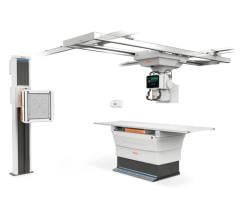
As another presidential campaign ramps up to be in full swing by the fall, healthcare promises to be a bellwether issue – a litmus test, if you will – for whomever is chosen to occupy the White House next.
While candidates swirl around several overarching issues, such as universal access and escalating costs, they aren’t really honing in on any of the undercurrent issues fueling the problems being promoted for public consumption.
One primary undercurrent is the competitive and political infighting between hospitals, ambulatory surgery centers and their upstart cousins, physician-owned specialty surgical hospitals, the latter of which reignited the rift between hospital-based and outpatient-oriented service lines.
How ignorant and sad that any workable solutions to all that ails the healthcare industry are being slowed, if not slighted, by something so petty as competition. Arguably, hospitals are in a tough spot. They have to treat everybody, regardless of condition or ability to pay, and figure out how to remain in business for themselves and the common good. In the past, hospitals battled doctors for control over most decisions, leading to the creation of an administrative and largely inefficient juggernaut to waste resources. That led to the Great Power Shift of the 1980s, when insurance companies and payers swooped in to assume control under the banner of managed care.
Certainly, with the bean counters in charge nothing much in the way of process and progress has changed. Just the new players benefiting at the expense of the rest.
That’s why it rings hollow when hospitals resurrect their simmering feud with ASCs (from the early 1970s), courtesy of the new physician-owned surgical hospitals allegedly usurping all of the lucrative patients that general hospitals liked to drain to feed the bureaucratic beast, that black hole of wasteful spending.
How tragic, simple-minded and short-sighted healthcare industry players are for turning on themselves in a desperate, last-ditch, 11th-hour effort to eliminate combatants in a perceived survival of the fittest. Healthcare can’t afford this. Neither can its customers. Like it or not, ASCs, physician-owned hospitals and general hospitals are in the same business – caring for patients and ultimately saving lives.
ASCs and physician-owned hospitals may be nimbler with more freedom to act quickly and decisively, unencumbered by all the stuff hospitals face (which is why doctors created them in the first place – not necessarily to get rich), but all too frequently hospitals use that as a bludgeon.
Like it or not, ASCs and physician-owned hospitals are on the leading edge of healthcare reform, models of efficiency and sources of surgical pride. In this edition of Outpatient Care Technology, we highlight only a few of the thousands of ASCs that succeed.
What’s frustrating is that instead of emulating (as best as possible) how these facilities operate, hospitals rather would attack them. Obviously, cleaning up their acts is not an option, leaving ASCs to continually concentrate on defending themselves instead of working with hospitals. Perhaps it’s easier to eliminate the destination than to alter course. The tonic? Certain healthcare players need a dose of Robert Frost.
Whatever you do, mean business.


 June 28, 2024
June 28, 2024 








